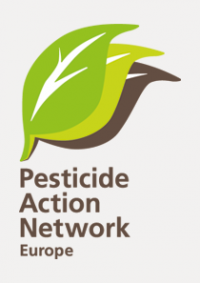The European Commission’s Vision for Agriculture and Food proposes easing market access for biological control substances (biocontrol). PAN Europe welcomes more capacity for biocontrol risk assessment and optimised approval procedures to foster their availability. Biocontrol is an important alternative enabling the phasing out of harmful pesticides. However, narratives claiming that synthetic pesticides are indispensable, that alternatives are currently missing, or that biocontrol can simply replace other pesticides one-for-one are misleading and risk delaying real change. A real transition away from harmful pesticides is not about swapping products; it is about transforming systems. That means embedding biocontrol within Integrated Pest Management (IPM) strategies that prioritise prevention, soil health, biodiversity, and ecosystem resilience, all supported by farmer training and advisory networks.
As more synthetic pesticides come up for re-evaluation, growing evidence shows that many fail Europe’s own safety standards for human health and the environment. Yet every proposed ban faces fierce resistance under a familiar refrain: “There are no alternatives.” [1]. This narrative, claiming that “pesticides are indispensable” is nothing new. It has been repeated for decades, serving as a shield for the pesticide industry lobby to defend their toxic substances, with the calculated aim of deregulating the bans of synthetic pesticides.
The Commission’s new plan to accelerate biocontrol approvals announced in the Vision for Agriculture and Food is, in part, a response to that pressure [2]. In its recent Call for Evidence on food and feed safety, the Commission echoed the narrative: “Farmers face a shrinking toolbox as older products lose authorisation and new alternatives—particularly biopesticides—are slow to reach the market.” [3]
But are farmers really short of alternatives? The data tells a different story.
